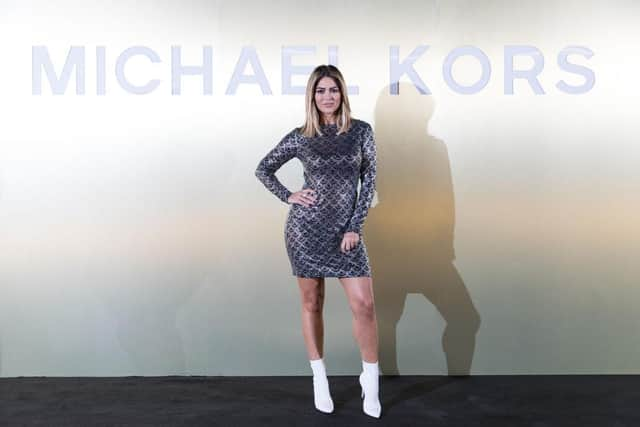Newcastle United takeover Saudi ' deal maker' reveals 'long-term' sports institution investment strategy as PIF deal hangs in the balance
and live on Freeview channel 276
That’s also a view shared by key player in the Newcastle United takeover process, Saudi-linked dealmaker Carla DiBello.
In her latest guest article for Arab News, DiBello, CEO of Middle East consultancy firm CDB Advisory, lauds the virtues of investing in a sporting institution.
Advertisement
Hide AdAdvertisement
Hide AdDiBello, who courts headlines due to her childhood friendship with the Kardashian family, was one of the brokers who helped pull together the Newcastle United investment opportunity for the Public Investment Fund of Saudi Arabia back in 2019.
Since then the deal has hit the rocks, with the English Premier League failing to ratify the mainly PIF-financed buyout of Sports Direct tycoon Mike Ashley. PIF were poised to purchase an 80% stake in United in 2020, along with Amanda Staveley and Mehrdad Ghodoussi’s PCP Capital Partners and the super-rich Reuben Brothers organisation both taking a 10% stake respectively.
The deal, which is currently being pursued by Ashley through legal routes, is further complicated by the prospect of Newcastle United suffering relegation from the Premier League, with the Magpies just two points above the top flight relegation zone.
DiBello claims, however, it is not always the immediate gains which prove the most vital.
Advertisement
Hide AdAdvertisement
Hide Ad"The most basic yet powerful tool for advising any kind of business is the process of stepping back to assess the multi-tiered advantages that a deal can bring to a client,” she writes.


“The best investments are always those that create a ripple effect, providing benefit to not just the client, but to an entire socio-economic ecosystem. From my experience, I have seen firsthand that different investments yield very different returns.
“While the layman generally looks first to the short-term and direct profit, a solid investment is assessed from every angle, including advantages in long-term financial goals, economic diversification, cultural growth, networking, and legacy building.
“Considering how the pandemic has affected nearly every sector in one way or the other, with those centralized around public gatherings being hit the hardest, one might be surprised to learn that the value of sports team franchises, as a whole, have continued to climb throughout.”
Advertisement
Hide AdAdvertisement
Hide AdDiBello, with very close ties to the power brokers in the kingdom including de facto ruler Mohammed bin Salman and PIF chief Yasir Al-Rumayyan, points towards Dubai-owned Manchester City as an example of where investing in a sport institution, when done right, can work positively.
"Woven into the fabric of today’s culture, not even a pandemic shutdown of public gatherings can waiver long-term faith in the sports entertainment industry or the steadily increasing value of a team as an asset,” DiBello continues.
“While short-term profits are definitely possible for a smart, strategic owner, particularly when it comes to TV and media rights deals, which create lucrative revenue on their own, with the right investments implemented along the way, long-term advantages almost always outweigh short-term profit margins.
“Investment-wise, appreciation is a clear motive.
“Manchester City, for example, had a value of around £210 million ($293.2 million at current exchange rates) in 2010, but in 2019 was valued at a little more than £2 billion.”
Advertisement
Hide AdAdvertisement
Hide AdDoing it the Ashley way, however, is not one that will yield any gains either financially or socially.
“However, that is not to say that just buying a team and holding would alone yield favorable capital gains. There is significant work in building up a team’s value along the way,” she writes.
“Additionally, the introduction of a sports franchise to a community is an intrinsic socioeconomic investment in the local community itself. It stimulates job creation, ranging from general to niche, diversifies the economy, and lends strong support to tourism efforts and the additional benefits that tourism can bring to a region. Job creation (as well as additional tax revenue brought in by the franchise) can be a good way to measure the added value of a sports team to a community, there are several other advantages that are not as quantifiable yet arguably are even more beneficial. This is where the ripple effect comes into play.
“Fiscally speaking, one of the least measurable factors is the creation of local multiplier jobs — in other words, jobs created indirectly due to changes. A great example of this is how sports sectors can benefit tourism and vice versa.
Advertisement
Hide AdAdvertisement
Hide Ad“In reference to tourism, it is also notable that sports teams encourage travel and create a global presence. The better known a sports team is, the bigger the spotlight for its host. In marketing and media attention alone, this can serve as a huge advantage to a region. It places the region’s culture and people on a global stage and in an aspirational light, creating a legacy while opening the door to even more opportunity.
“Culturally speaking however, the greatest benefits of owning sports teams and hosting sports events happen right at home. To start, nothing brings a community together more than rooting for the same team. It strengthens an individual’s sense of belonging to a community, building cohesiveness and a communal bond.
“This, in turn, contributes to a tangible and prideful local identity, empowering individuals and businesses while boosting morale. While not as easily tracked, morale should be considered another form of currency when considering local multiplier effects as its momentum is exponential. Give a country a collective sense of hope and the possibilities are endless.”
Morale, particularly when asking Geordies about Newcastle United, could not, at this stage be any lower.
